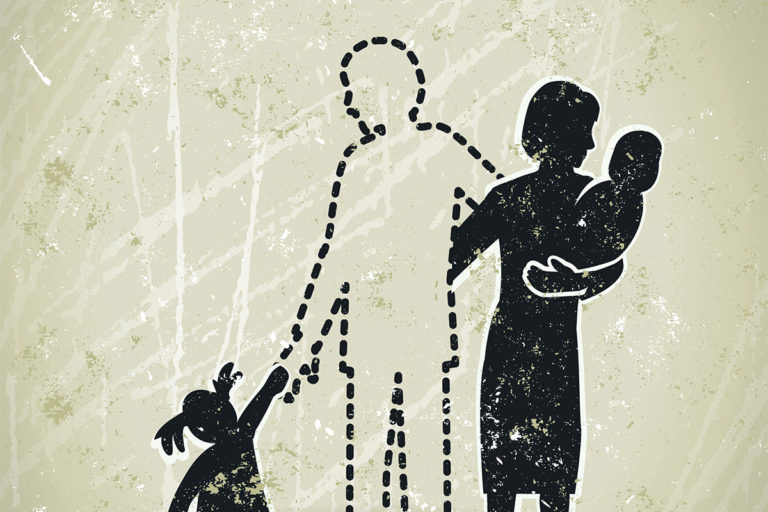April 22nd, 2020
“Spousal Distancing”- COVID-19 & Divorce
Posted in: Family Law Tagged: Coronavirus, Monica Garcia Harms
Author: Monica Garcia Harms

As we watch other countries begin the long recovery process from the COVID-19 crisis, we can anticipate global similarities in the tangential problems within the family caused by the pandemic. Some hoped that the lock down of families would generate a baby boom or more closely knit familial relationships, but it is believed that the opposite is occurring in many countries. China reports a marked increase in the divorce rate since the COVID-19 crisis. It is not surprising that when families are confined and face increased emotional and financial pressure, marital discord can be exacerbated. Add the distress over the health and safety of loved ones and a marriage that is on the rocks becomes increasingly vulnerable. If you or someone you know is contemplating separation or divorce, it is important to keep in mind some unique considerations given the COVID-19 climate.
- Be Patient: The last pandemic happened approximately a hundred years ago, so if your marriage feels turbulent now but generally was fine before COVID-19 understand that with some time and professional help you may be able to put things back on track. How a spouse reacts to a crisis situation may be such a rare circumstance that meeting with a trained professional could save your marriage. Putting the effort into attempting to save a marriage is always worth the time and patience. A crisis is often the catalyst to accelerate a broken marriage and not the reason for the breakdown of an otherwise fine (not perfect, of course) marriage. Recognize and appreciate where your marriage was prior to COVID-19, and don’t panic due to a crisis-driven change.
- Be a Good Person: In a world of uncertainty, one thing remains consistent as it relates to family law. Taking the high road will prevail. While there are many uncertainties in the current environment, one thing is sure: taking advantage of the restrictions that a pandemic creates such as willfully withholding support, withholding access to children, or being generally uncooperative with a spouse knowing that the court is not open to address matters in the normal course, will not help your case. In fact, the results of poor behavior will likely illustrate to a court in the future your unreasonableness, which could negatively impact your case in a number of irreversible ways. If your spouse is using the current pandemic to take unreasonable positions, you should seek counsel to document their actions and hold them accountable.
- Gather Important Documents: While at home take the time to gather, copy or scan important financial information. One of the most time consuming tasks for divorcing spouses is collecting financial data. Get a jump start on the divorce process by gathering your credit report, three years of personal and business tax returns (state and federal), one year of financial statements (retirement, investment, checking and savings), documents which evidence liabilities (mortgage statement), insurance policies, appraisals of property, and any legal documents such as wills, estate planning documents, and pre-marital agreements.
- What’s on our smart phone?: Social Distancing means conversations that previously occurred in person may migrate to text messages. In addition, social media platforms are seeing an increase in postings during the pandemic. If you are contemplating a separation or divorce it is important that you refrain from posting or texting information that could be used against you later. Even deleted conversations thought to be private can be retrieved in some circumstances and could negatively impact the outcome of your divorce. Being mindful of what content to launch into the digital world always is important, but is doubly important now.
- Explore Alternative Resolution Options: Like every other facet of normal life, the court system has been interrupted by the pandemic. Only emergency matters involving the health and safety of individuals are being addressed. The courts are closed to the public except for limited exceptions and while courts are scheduled to open June 5, 2020, that date could be further extended. It is expected that when the courts re-open to the public, there will be piles of documents to process and a gridlock of cases to reschedule. Given that reality, anyone deciding to explore separation and divorce should seek the counsel of an attorney experienced in negotiation, mediation, and collaborative law as getting your “day in court” may not happen any time soon. An experienced attorney can resolve even the most challenging of issues.
- Create a Plan: Meeting with an attorney to come up with a plan early can increase the likelihood that ultimately you will achieve a favorable outcome. Family law attorneys are available who can help you think through and understand your options, not push you to get divorced. Obtaining information promptly as issues arise will allow you to make decisions early in the process and develop a plan for how best to move forward. Whether it is coming up with an access schedule for your children, making sure you have sufficient support to meet your expenses, or finding a new place to reside, an attorney will help you navigate uncharted territory.
Fortunately for some couples, increased time together spurs better communication and an improved relationship, but a disaster can also act as a catalyst to accelerate feelings of action to permanently distance themselves from their spouse.
Finding a family law attorney who can explain your options and help you come up with a plan that meets your individual goals is paramount. Stein Sperling’s experienced family law attorneys are skilled negotiators, mediators, collaborative professionals and litigators. We are working and available for virtual meetings, conferences and to engage in all virtual forms of dispute resolution. Our innovative use of technology allows clients to continue to move forward on a path to resolution even during the COVID-19 crisis. Please let us know how we can assist your family.
You can find more on issues affecting businesses and individuals in our COVID-19 Resource Center.







